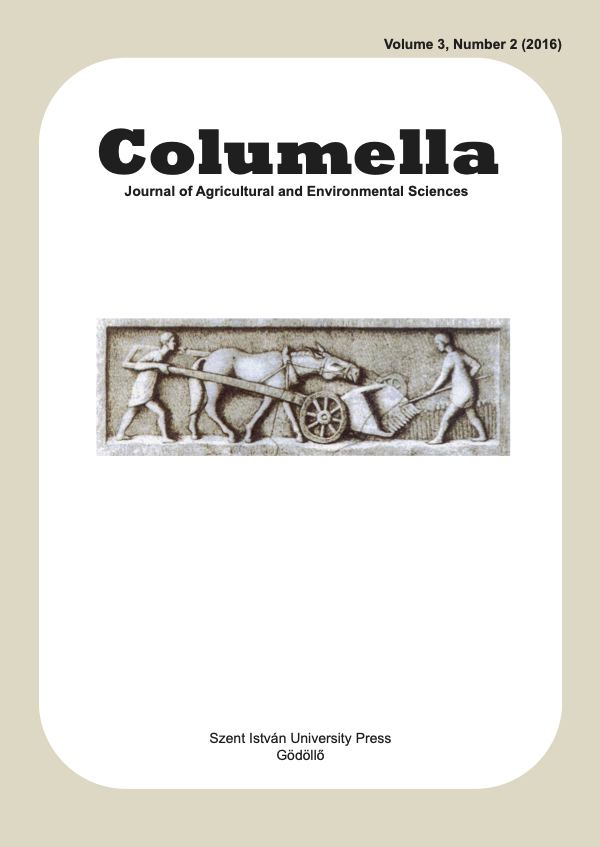Study of the degradation patterns of thermophilic fungi from special digested wastewater sludge samples
DOI:
https://doi.org/10.18380/SZIE.COLUM.2016.3.2.47Keywords:
fungal species, wastewater treatment, ecophysiological propertiesAbstract
Digested wastewater sludges have high content of thermophilic fungi because of the anaerobe biodegradation. This study shows the ecophysiological properties (cellulose, hemi-cellulose, lignin and fatty-acid ester degradations) of thermophilic fungi which were isolated from digested wastewater sludge samples. The samples came from three Hungarian wastewater treatment systems. In this study four types of mycological agars were applied. This study shows digestion properties and growing temperature range of eight thermophilic fungal species. This study demonstrated wide ranges of digestion properties. Most of the isolated species are appropriate for degradations of several biopolymers.
Downloads
Published
Issue
Section
License
Copyright (c) 2016 Márton Czikkely, Ágnes Bálint

This work is licensed under a Creative Commons Attribution-NonCommercial-NoDerivatives 4.0 International License.






